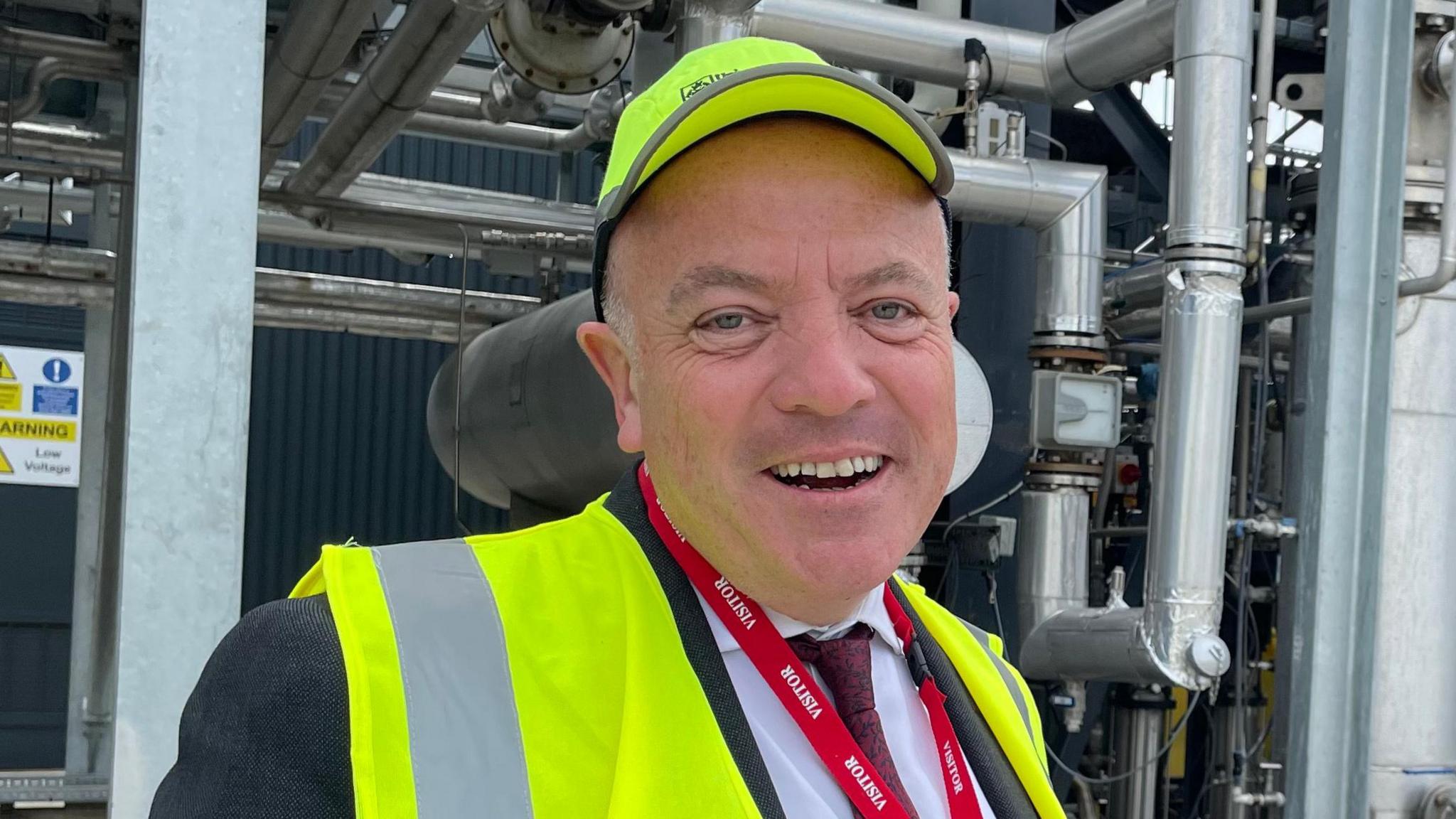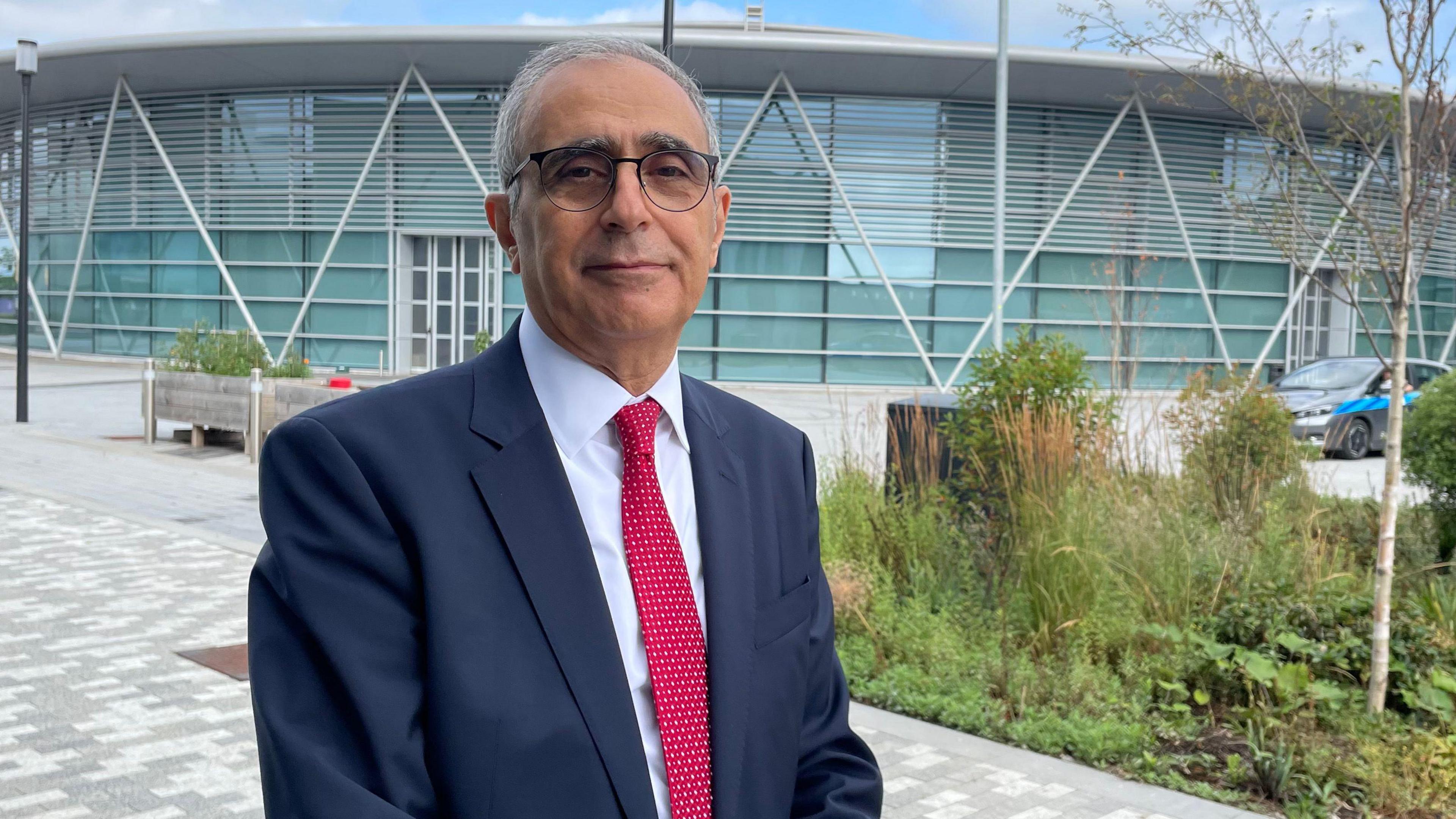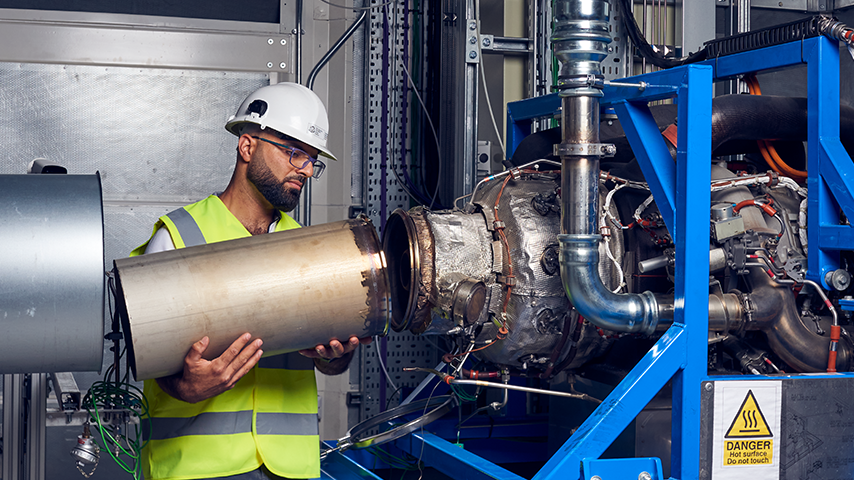Funding boost for green jet fuel research

Aviation Minister Mike Kane announced new investment into sustainable air fuel
- Published
The University of Sheffield will receive a share of government funding to boost its research into sustainable aviation fuel (SAF).
The Energy Innovation Centre is to receive £1.5m of the £63m funding package, which is being shared with 16 other UK groups working in SAF research and production.
SAF is an alternative to fossil jet fuel which reduces carbon emissions on average by 70%, according to the Department for Transport.
Aviation Minister Mike Kane said: "From the labs of Sheffield to the runways of the future, this is how we kickstart economic growth, secure energy independence and make Britain a clean energy superpower."
He said it was "absolutely critical" to decarbonise aviation - even though it currently only contributed to a small proportion of the country's transport pollution.
"The University of Sheffield has one of the leading research and development institutes in this area - it's so innovative," he said.
"I've been well impressed, as they would say in Manchester," the Wythenshawe MP added.

Prof Mohamed Pourkashanian said his team were working to reduce the price of creating SAF
Mohamed Pourkashanian, Professor of Energy Engineering and Head of the Energy Innovation Centre, said he was "delighted" by the announcement.
Prof Pourkashanian said: "More importantly, it is a clear indication of the UK government's commitment to both the environment and energy security."
He said one of the main challenges for researchers was to negate the cost of SAF, which is more expensive than using fossil jet fuel.
One method being trialled is to capture carbon emissions created by other industrial processes, which can then be converted into SAF.
He said the next-generation technology being explored could reduce the price of producing SAF by "a minimum of 20%".
Prof Pourkashanian said the team hoped Sheffield would be recognised at an international level, which would encourage companies to invest in the region's production of SAF and create local jobs.
Get in touch
Tell us which stories we should cover in Yorkshire
Listen to highlights from South Yorkshire on BBC Sounds or catch up with the latest episode of Look North.
Related topics
- Published20 September 2024

- Published29 November 2024
